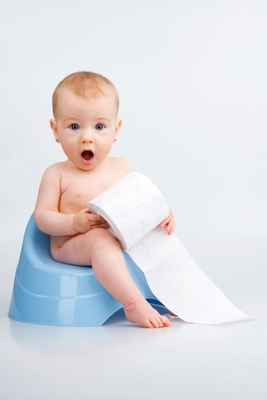
In our article, you can find the answers to all the questions about when is the toilet inclination given in babies, at what age should toilet training be started, etc.
Toilet training in babies also plays a very important role in child development. Because it is an action that the baby can do on his own without the need for someone else's help. When starting this education process, there should be a period when not only you but also your baby is ready, he can feel some of his needs, comprehend and do it on his own. You should not force the baby to do some things when it is not appropriate, to teach them because you want. If this is a complete disappointment for you, a completely wrong sanction for your baby, a lack of self-confidence can react negatively as a feeling of inadequacy in some issues.
Most of the time, it is seen that mothers start this education at an early age by acting hastily to meet the toilet needs of their babies themselves. It is not necessary to act prematurely with the thought that he has grown up appropriately for his age and he can make his own toilet needs. In order for the child to start this education and be successful, he must be ready both physiologically and emotionally.
With the CONCEPT OF BEING READY OF THE CHILD, which was developed by Brazelton in 1962, we see that there are some parameters that show that the child is physically and mentally ready for certain things in toilet training.
The period when the baby is most physically ready for toilet training starts with 18 months. There are children up to the age of 3 who are ready for this. Namely, while some babies are ready for toilet training from 18 months onwards, some babies may be sufficient for this training at the age of 3 years. The reasons for this are the structure of the family, psychological factors, physical factors or a situation related to gender. In the month when full toilet training will start, news of a new sibling, illness, moving house, traveling to a different place, changing events in the family may cause toilet training to fail. The biggest rule to know is that toilet training should be postponed if such conditions that will affect the baby during this period prevail.
Another indicator that babies are ready for toilet training is dry diapers in the morning. If the first diaper you change when you get out of bed in the morning while changing the baby's diaper is constantly dry, this is an indication that it is time for toilet training.
Every mother wants her baby to go to the toilet after a certain month. As we mentioned above, this is an important period. Your baby is now ready for toilet training and now that you are ready, let's see together what should be done for training.
First of all, before starting the training, you can start by asking questions whether there is pee or poop while cleaning your baby's bottom without squeezing from time to time. It may be helpful to remind him at every changing time that the wetness of his diaper may disturb him. The idea of going potty shopping with your baby that will make the toilet fun for him can be enjoyable. It will be motivating for your baby, especially if you buy a potty of his choice. If there are babies, they love to imitate their older sisters or parents. Be sure to explain to them how you use the toilet in appropriate language. Explain that you are not clothed in diapers, how annoying the diaper is, and that he's grown up like his older brother and sister, and that he can go to the potty without a diaper underneath. Don't be too persistent. Remember that the first times will be difficult and habits are not easily forgotten. Thanks to your patience, your baby will pass this situation very easily.
It should not be forgotten that a toilet training process, which proceeds with the negatives, judges the baby unconsciously and puts pressure on the baby, can create emotional traumas in the baby. We should know that it is a process that you need to proceed meticulously accompanied by love, respect and patience.
We have stated that toilet training is a training that varies from child to child. As with the practice process, the process of being successful and grasping varies from baby to baby. While some children complete the education successfully within 3 days, some babies may take longer. Be patient and support your baby to get through the period easily by having conversations with your baby without offending, forcing, or getting angry.
If you observe that your baby is not successful after starting toilet training, you can take a break from the training and start again at a suitable time instead of forcing and insisting.
You can also check out this blog post: When Do Babies Craw and Sit?